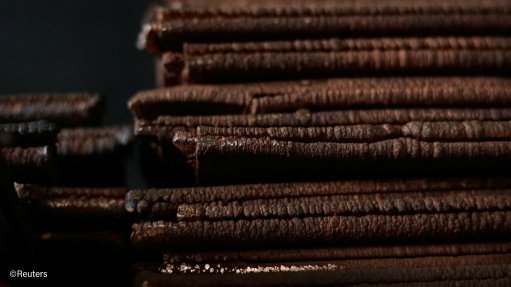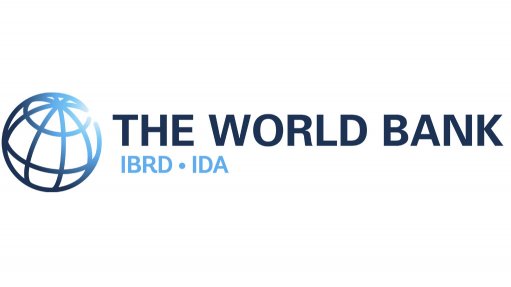Egypt to approach UN Security Council as it seeks to block Ethiopia mega dam project
The protracted dispute between Ethiopia and Egypt over the construction of a mega dam on the Nile river might be headed for the United Nations (UN) Security Council.
After weeks of negotiations to resolve the dispute, ignited by Ethiopia’s determination to construct the Grand Renaissance dam, ended in a standoff, Egypt now wants to seek redress at the UN body.
According to Egypt’s Minister of Irrigation and Water Resources Mohamed Abdel Moteleb, the country intends to approach the UN Security Council to establish its right to veto the construction of the dam on the basis that it threatens its water security.
“Egypt has rights guaranteed by international law and agreements and that is why we want to explore international channels to stop the construction of the Grand Renaissance dam.”
Ethiopia walked out of the negotiations, held in Khartoum, the Sudanese capital, after rejecting recommendations by Egypt for a panel of experts to be established to monitor the construction of the $4.8-billion dam, which will be capable of generating 5 250 MW of electricity.
Egypt invoked agreements guaranteeing the rights of affected States, particularly those signed in 1929 and 1959, which guarantee Egypt 55.5-billion cubic metres of the estimated total of 84-billion cubic metres of Nile water produced each year. Both Egypt and Sudan lie downstream of the planned dam.
Ethiopia has vowed to continue building the dam, which will result in its being energy sufficient and able to export electricity to neighbouring countries.
Ethiopia’s Minister of Water, Energy and Irrigation, Alemayehu Tegenu, said Egypt was misinformed about some issues regarding the dam and the amount of water that would reach Egypt, averring that Ethiopia would not accept the proposal to jointly monitor the project.
“While carrying out our project, we are also aware that the Egyptian people need to use the water of the Nile too. We are asking to develop this resource with a mutual benefit in mind,” he said.
He added that Ethiopia intended to use the water of the Nile solely for electricity generation and to release it to downstream countries that depended on the river for bulk of their water needs, including irrigation.
Ethiopia contends the signing of the Nile Basin Cooperative Framework by seven of the eight countries that share the Nile’s water in 2011 ended Egypt’s exclusive right to the river’s water guaranteed by a colonial treaty signed in 1929.
The framework provided for the equitable sharing of the Nile’s water by the eight countries the river crosses, which, besides Egypt, Ethiopia and Sudan, include Uganda, Tanzania, Kenya, Rwanda and Burundi.
Ethiopia is the source of 86% of the water that flows into the Nile, the world’s longest river.
Although a Tripartite International Panel of Experts appointed last year by Egypt, Ethiopia and Sudan to investigate the potential impact of the planned dam concluded that it would not affect the flow of water to Sudan and Egypt, the Egyptian government continues to have reservations about the project.
In its report, the panel noted that the dam would be beneficial to the two countries as it would regulate the flow of the Nile and thus reduce the challenge of flooding that is frequent, particularly in Sudan.
“In Egypt, the dam will improve flood control and the flow to the Aswan dam, reduce evaporation losses by as much as 12% and reduce sediment reaching the Aswan dam, [which will] increase its life by up to 100 years,” states the report.
Egypt, however, contends the dam will reduce the flow of the Nile, particularly after Ethiopia diverted the Blue Nile, a key tributary of the Nile river.
With a population of some 85-million people, Egypt depends on the Nile for about 90% of its water requirements.
Comments
Press Office
Announcements
What's On
Subscribe to improve your user experience...
Option 1 (equivalent of R125 a month):
Receive a weekly copy of Creamer Media's Engineering News & Mining Weekly magazine
(print copy for those in South Africa and e-magazine for those outside of South Africa)
Receive daily email newsletters
Access to full search results
Access archive of magazine back copies
Access to Projects in Progress
Access to ONE Research Report of your choice in PDF format
Option 2 (equivalent of R375 a month):
All benefits from Option 1
PLUS
Access to Creamer Media's Research Channel Africa for ALL Research Reports, in PDF format, on various industrial and mining sectors
including Electricity; Water; Energy Transition; Hydrogen; Roads, Rail and Ports; Coal; Gold; Platinum; Battery Metals; etc.
Already a subscriber?
Forgotten your password?
Receive weekly copy of Creamer Media's Engineering News & Mining Weekly magazine (print copy for those in South Africa and e-magazine for those outside of South Africa)
➕
Recieve daily email newsletters
➕
Access to full search results
➕
Access archive of magazine back copies
➕
Access to Projects in Progress
➕
Access to ONE Research Report of your choice in PDF format
RESEARCH CHANNEL AFRICA
R4500 (equivalent of R375 a month)
SUBSCRIBEAll benefits from Option 1
➕
Access to Creamer Media's Research Channel Africa for ALL Research Reports on various industrial and mining sectors, in PDF format, including on:
Electricity
➕
Water
➕
Energy Transition
➕
Hydrogen
➕
Roads, Rail and Ports
➕
Coal
➕
Gold
➕
Platinum
➕
Battery Metals
➕
etc.
Receive all benefits from Option 1 or Option 2 delivered to numerous people at your company
➕
Multiple User names and Passwords for simultaneous log-ins
➕
Intranet integration access to all in your organisation


















